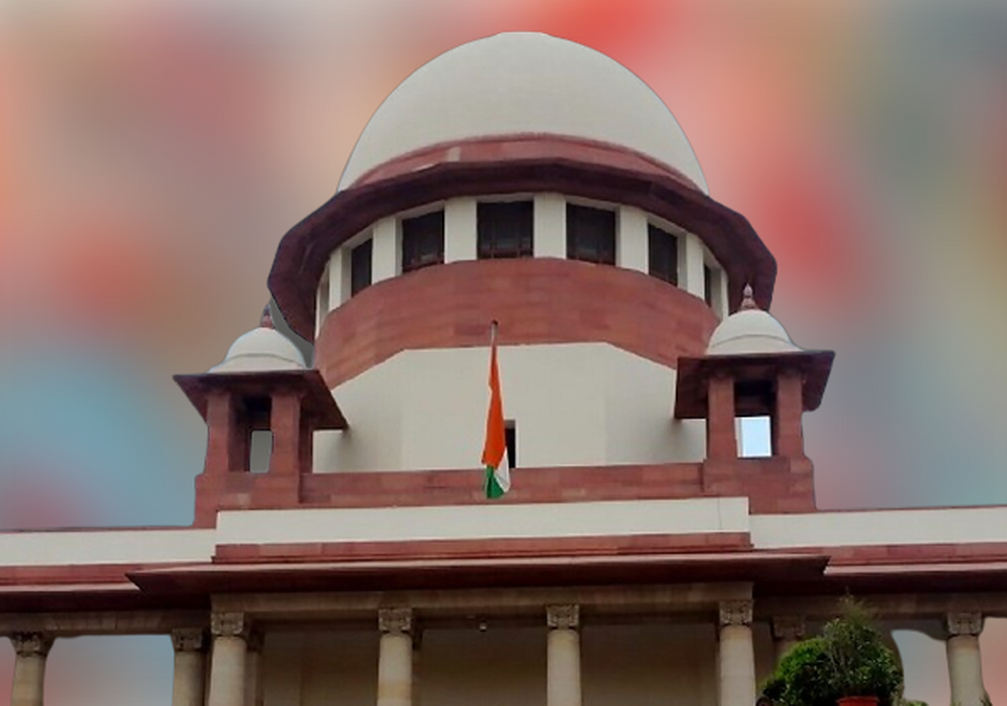‘I strongly believe that study of a judgment is incomplete without studying the judge behind it.’ – Namit Saxena

Namit Saxena is an Advocate on Record at the Supreme Court, who secured the second position in the AOR exam. He is the revising author of The Code of Civil Procedure (Mulla) and The Code of Criminal Procedure (Ratanlal and Dheerajlal). He is an alumnus of the Dr Ram Manohar Lohiya National Law University, Lucknow.
Q. What are the practice areas that you specialise in?
While the practice areas are diverse, I work more on the criminal side. We also work on various constitutional law issues.
Q. You often write for various publications on different subjects pertaining to the laws. What are the issues of jurisprudence and legal theory that you find to be the most interesting, especially as a practicing lawyer who may come across some of them while researching?
Criminal law and constitutional law are the most attractive fields. While researching on a few issues, I have found the background of Supreme Court judges and their personal beliefs or understanding of various laws, the most interesting. For example – Justice Rohinton Nariman has had a strong fascination towards the ‘manifestly arbitrary doctrine’ which says that even parliamentary enactments can be nullified for being manifestly arbitrary. He argued this as a lawyer in McDowells case (1996). Later when he became a judge, he has used the same in multiple judgments. I strongly believe that study of a judgment is incomplete without studying the judge behind it.
Q. Have you faced any systemic problems as a lawyer? What kind of changes/improvements would you like to see in the Indian justice delivery system?
Lawyers face multiple systematic problems. These range from client handling, accepting fees, mode of accepting fees, assuring timely payment of fees, drafting and approaching the court timely, extracting useful documents from the bunch of documents clients handover to you, re-filing the case by curing defects, dealing with registry officials, getting the case timely listed, serving an advance copy (except in Supreme Court), updating the client, briefing a senior advocate if the client insists, arguments, process fees/spare copies, maintaining records and dates, follow up with the client, etc. All of these carry different problems at all levels.
The best change would be to prescribe time limits for everything – Eg. duration for presentation of chargesheet by the investigating agencies after completion of investigation should be defined.
Similarly, time should be fixed for each matter for hearings. Advocates waste a lot of time while waiting for matters to reach the hearing from the cause list. If all matters have fixed time for hearing, eg if it is fixed that item 47 will be taken up at 03:15pm in a court, a lot of time will be saved and can be utilized better by lawyers.
Q. You were among the top two when the AOR exam results were announced earlier this year. It’s a big achievement. What advice would you like to give to lawyers preparing for the AOR exam?
Supreme Court Rules, 2013 and relevant provisions of the Constitution should be thoroughly learnt. For Drafting paper, one must be thorough with the formats. For the examination on Leading Cases, the background and follow-up of all cases must be well known.
Q. Do you think the coronavirus-induced lockdown has been a blessing in disguise for the initiation of bringing technology into courts? Can legal technology, based on Artificial Intelligence and data analysis, in the long run, make the judicial system more efficient?
It is both a boon and a bane. For young lawyers, lockdown has made it difficult to sustain themselves. Use of technology will be better if the Courts also adapt to it. E-filing and virtual hearings have been a boon. It relaxes the travel time for lawyers. I think AI is already in use to a certain extent in the field of practice of law. It can be developed better.
Q. How do you like to unwind when you are not working?
I have been investing time into learning gardening. That is very relaxing.
****
Sign up for our weekly newsletter to stay up to date on our product, events featured blog, special offer and all of the exciting things that take place here at Legitquest.




Add a Comment